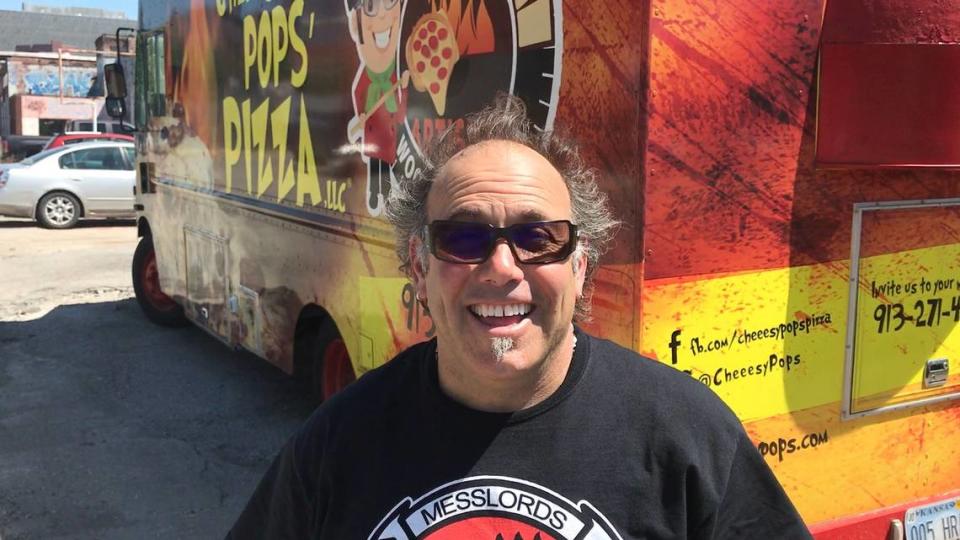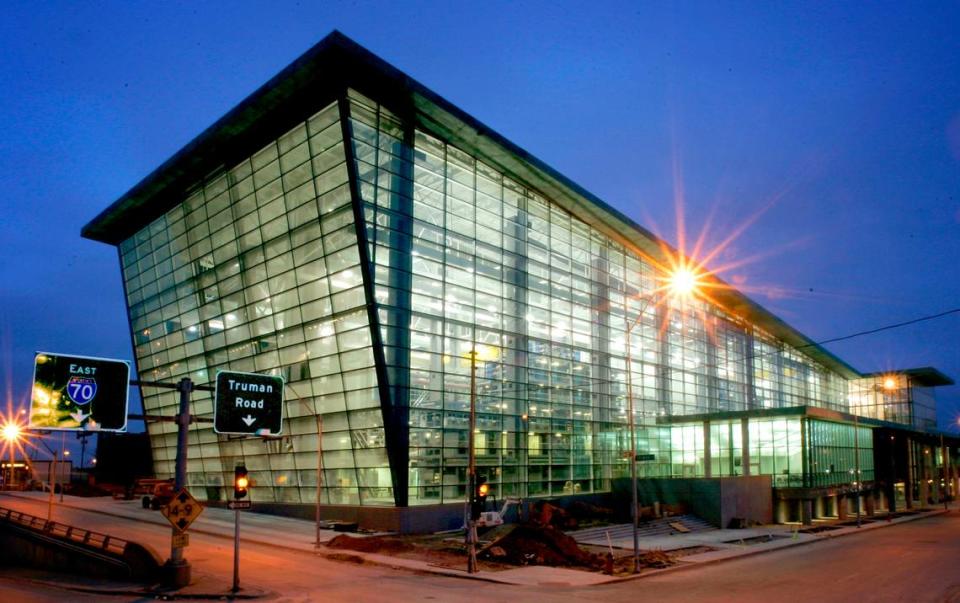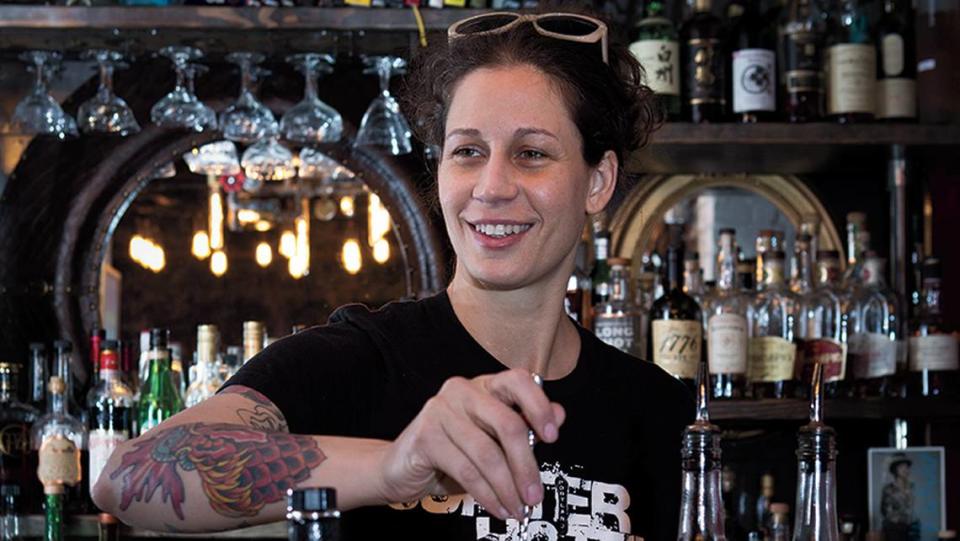Would a new Royals stadium in the Crossroads help or hurt KC businesses? Some shops worry
Reality Check is a Star series holding those in power to account and shining a light on their decisions. Have a suggestion for a future story? Email tips@kcstar.com.
To real estate investor Matt Abbott, building a new ballpark in the East Crossroads neighborhood seems like a genius move. Why of course it makes sense, he says, to erect Kauffman Stadium’s replacement in that thriving area with tons of entertainment options, rather than north of the river. Or on largely vacant lots in an obscure corner of downtown called the East Village where almost no one lives or works.
“It’s a win-win,” Abbott said when a reporter called to tell him that the Royals were once again looking at the potential for building a new stadium at the site of the former Star printing plant at 1601 McGee St.
That would put the ballpark midpoint between the homegrown bars, distilleries and restaurants of the East Crossroads area and the KC Live! entertainment area in the Cordish Companies-owned Power & Light District within the downtown freeway loop.
“If they (the Royals) go somewhere else, they would try to replicate what’s already been built here, to bring the cool factor to the stadium when we already have all that cool stuff right here,” he said.
Sharing Abbott’s enthusiasm was Jeff Rumaner — the artist, entrepreneur and restaurant owner better known as Stretch, who helped instigate the East Crossroads boom 20 years ago with his sculpture studio and Grinders Pizza restaurant at 417 E. 18th St.

“Having it in the Crossroads would benefit a hell of a lot more moms and pops, local businesses, than building a complete new entertainment district,” he said.
Maybe so, but not all those mom and pops think a new stadium in the East Crossroads is such a good idea, especially if that would mean flattening parts of the area to make room for a ballpark.
“You’re not going to tear down a bunch of buildings to make it happen. That’s a red line for me personally,” said David Johnson, a member of the board of the Crossroads Community Association who says that’s his personal opinion, not the board’s.
“Our neighborhood association hasn’t taken a position and probably never will come to a consensus,” he said.
But his is not a fringe stance. Several business owners near where the ballpark might be built in the East Crossroads told the Star’s reporters that they believe the project could be a disaster for businesses and institutions in the Crossroads that might be displaced to make room for a stadium, as the printing plant site alone might not be big enough.
They also worried that still others could be negatively affected in the two years it would likely take to build the ballpark in the neighborhood where entrepreneurs have worked for decades, without public subsidy, to fill empty storefronts and industrial buildings with craft breweries, art galleries and eateries.
“I’m very nervous about it,” said Sarah Hoffmann, owner of Green Dirt Farm restaurant and creamery in Weston, who in February plans to open a satellite restaurant and cheese-making factory across from the Star building at 1601 Oak St. “There’s a lot of uncertainty about what’s going to happen.”
Star site back on the table
Uncertainty has been the theme throughout the discussions about a new baseball stadium since John Sherman became the team’s principal owner four years ago. Coyly at first, Sherman said he was open to the possibility of building a downtown ballpark. Later, he began to advocate for one, and in a letter to the community last fall announced that the team was working toward that goal.
News outlets reported that the search was on for sites around downtown to build that new stadium. For months, the Royals evaluated one after another, including the two blocks on which the Star built a $200 million printing plant in 2006 that it sold and then abandoned in 2021 to cut costs in response to a rapidly changing business climate for the newspaper industry.
In June, team officials said they had narrowed the search to two preferred sites, and the Star building was not one of them. But as Star sports columnist Sam McDowell reported last week, the Royals are once again analyzing that site.
According to records, Sherman and team president Brooks Sherman met with Mayor Quinton Lucas and Cordish Companies principal and vice president Blake Cordish two weeks ago at the offices of Populous, the company chosen to design the new ballpark.
It’s not clear what the outcome of that private meeting was. But Lucas’ chief of staff said that the city and the Royals have in recent weeks “engaged in productive and increasingly concrete discussions related to the potential of a new Royals stadium in downtown Kansas City.”
Jackson County did not have a representative at the meeting, but county officials will need to approve any tax that goes on the ballot to pay for the public’s share of the project, if it goes forward.

Neighbors in the dark
The Privatera family, which owns the printing plant, has tried to sell the Royals on the idea of building a stadium there. But the owners of properties surrounding the building have not been part of those discussions, several of them told the Star’s reporters.
Abbott is among those who’ve been kept in the dark. Property records show that companies he controls own at least nine of the 38 parcels on the blocks immediately to the east and west of the printing plant, on McGee and Oak streets, from 17th Street to Truman Road.
“We own property everywhere around there, for sure,” he said. “Am I happy to sell? I guess I’m not answering that question. This is the first time I’m hearing about this. All I’m saying is that I think there is a lot of validity to the conversation and investigating it.”
The downtown location of Resurrection, A United Methodist Church (formerly known as the United Methodist Church of the Resurrection) occupies an entire block across from the Star building, from McGee Street to Grand Boulevard, 16th to 17th streets, as well as one building a block to the north.
Church officials have not been contacted by the Royals or anyone associated with the stadium project, according to Cathy Bien, public relations and special projects lead director for the Leawood-based megachurch with more than 15,000 members and six locations around the metro area.
“We’re like everybody else, just kind of watching, waiting to see what happens. See where this goes,” she said.
As for making room for a new stadium by vacating the church’s now five-year-old building and large parking lot, that’s not something that’s been discussed much.
“From Resurrection’s perspective,” Bien said, “we love being a part of the downtown community. and plan to be downtown. But we also want to see downtown thrive and grow and we’ll just kind of wait and see what that looks like.”
Four property owners east of the printing plant who spoke to Star reporters aren’t nearly as willing to wait and see. They’re opposed.
“As a lifelong Kansas City Royals fan, I’m all for a new stadium,” said Donald ‘Mat’ Adkins, who owns The Pairing Wine and Grocer, the full-service liquor store and purveyor of charcuterie items at 1615 Oak. St. in a building he owns immediately east of the Star building.
“But East Crossroads is not the neighborhood for it. I’m concerned about the businesses that would be displaced,” he said.
John Pryor shares that concern. Pryor owns a building a block east of the printing plant, at 16th and Locust streets, which houses his twin businesses: Madison Flitch, a studio and art gallery that designs and makes artistic furnishings, and Madison Stitch, which makes leather bags.
“I think from the neighborhood perspective, a project here would require the demolition of a number of historic buildings that house a lot of the creative businesses that make the Crossroads so special,” Pryor said.
“On top of that, the East Crossroads in particular has become kind of the new location in the city where a lot of the artists are moving to because the rents are lower here. So you’ve seen things like the breweries really open up (and) art studios and galleries start to come over here that are a little more experimental.”
Not a good thing?
His business opened three years ago, one year before Jill Cockson signed a 10-year lease in 2021 to open a bar and pool hall called Chartreuse Saloon in one of Abbott’s many buildings at 1627 Oak St.
“When I started hearing about the stadium going across the street, I’ll admit I was thinking there’s no room. They wouldn’t do it,” Cockson said. “It didn’t even dawn on me that the plan would be to basically ask all the landlords to buy them out. I don’t think it’s gonna happen.”

But what if it did? It worries her, she said, because she figures Abbott would sell if the price was right.
“He’s a money guy,” she said.
Hoffmann of Green Dirt Farm owns her building, which is several doors to the north of Cockson’s bar, and she has no intention of selling it. After all, it took her quite a while to find the right place for the cafe and cheese-making facility she plans. Like the Royals, she conducted an extensive site selection search that included the West Bottoms, Johnson County and North Kansas City.
However, she worries that construction of a new stadium across the street from her new place might keep customers away.
“I’m very much in favor of doing the thing that’s right for Kansas City, and I agree that we don’t need another entertainment district,” she said. “But you know, I think of my little world, and it’s not a good thing.”
Will they really build a stadium there? she wondered.
“We just need to keep on keeping on and hope for the best,” she said.
The Star’s Sam McDowell contributed to this article.

